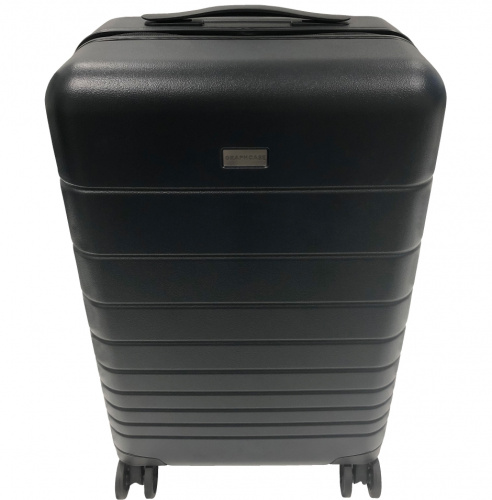
Working in collaboration with Manchester University, GraphCase has developed a patent pending technology to create a composite polymer using graphene that is made from 100 per cent recycled plastics.
Highways England and GEIC investigate graphene roads
Graphene-based wearable sensors self-power to monitor vital signs
The prototype graphene suitcase is claimed to be 60 per cent stronger, 20 per cent lighter and comes with a lifetime warranty. Furthermore, the material used can be recycled multiple times and still maintain its performance.
The use of one 20” GraphCase cabin luggage could potentially reduce 6kg CO2 emissions into the environment.
GraphCase is now working with the European Regional Development Fund (ERDF) Bridging the Gap Programme to take this concept forward.
Dr Shaila Afroj, Co-founder of GraphCase and former Manchester University student said: "Over the last several months we have worked extremely hard with Graphene Engineering and Innovation Centre (GEIC) at Manchester University and various partners to develop world first Graphene-enhanced travel case based on 100 per cent recycle plastics.
“We are hoping to bring our smart, strong and environmentally sustainable travel case to the market in the new year. By providing high quality, extremely durable and 100 per cent recycled plastics-based suitcase, we would like to provide greatest experiences to the travellers."
Globally, around 400 million tonnes of plastic is produced every year, with 40 per cent of that single use and nine per cent get recycled worldwide. One of the barriers for using recycled plastic includes degradation and thermal aging of the plastic as well as mixing low-grade materials into the batch, which results in poor performance properties and lower reusability.
Dr Nazmul Karim, the other co-founder of GraphCase said: "By adding graphene to recycled plastics, it was possible to develop 60 per cent stronger and 20 per cent lighter travel case with 50 per cent less CO2 emission. We are not stopping there, as the plan is to bring a range of graphene-enhanced environmentally sustainable recycled materials-based products to the market."










IET sounds warning on AI doll trend
I agree that we need to reduce cooling water demand for servers. And yes, generative AI consumes a large amount. But what about BitCoins? Their...